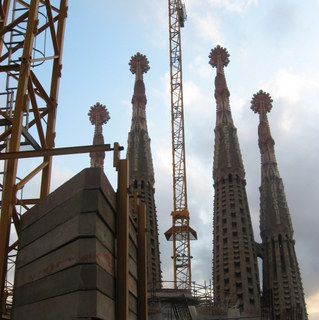Much of what I write on this blog will be notes toward a secular theology.
The fact that I write as a “Theological Engineer” might already suggest that my theology will be grounded with a scientific and therefore secular worldview.
I don’t see it that way. From engineering and the STEM worldview I gather intellectual tools: systems, heuristics, design, and a focus on efficiency, usefulness, and human need. These I lend to the intention and process of theological work: describing and clarifying the dynamics of ultimate concern, getting “ready to give an account of the hope that is in you”.
Of course, by writing a theology oriented toward humans, I fall squarely within the liberal Protestant Christian theological tradition. (That’s no surprise — I’m a white, politically liberal intellectual, educated at liberal nexus Union Theological Seminary.) Liberal theology was a humanist, intellectual movement within the European Enlightenment. It often spoke of God, religion, theology, faith, and the like through the application of tools from the humanities. To the authority of Scripture and tradition, it applied historical method and literary critique; to the human relationship with God, it applied psychology and modern categories of reason.
Engineering is a human form of creativity, and by applying it to theology I’m performing a fundamentally liberal theological endeavor.
That does not make my theology secular. Its makes my theology theology. What makes it secular is my audience. It is directed to the secular world I have made my home, and I have found its method inadequate to answer all the questions I needed to ask.
These questions are questions of meaning but they are not separate from our lives in a secular world. I think my Zen practice is an expression of this desire to bring the theological into the realm of everyday life. By ceding the ground of the ultimate to “religionists,” to those who use explicitly religious language and seem to inhabit an otherworldly religious arena, we lose a source of energy, a common way of discussing meaning and value, and an image of what human freedom and flourishing can be. To reclaim that ground, a secular theology would be a powerful tool — a “skillful means,” as Buddhism calls it. This theology would be liberal, interreligious, and draw on non-religious traditions as well.
But for its liberality, it would still be a theology — orienting us toward the ultimate, finding the ultimate in others, and recognizing how the ultimate confronts us and charges us to compassionate action.

1 Comment